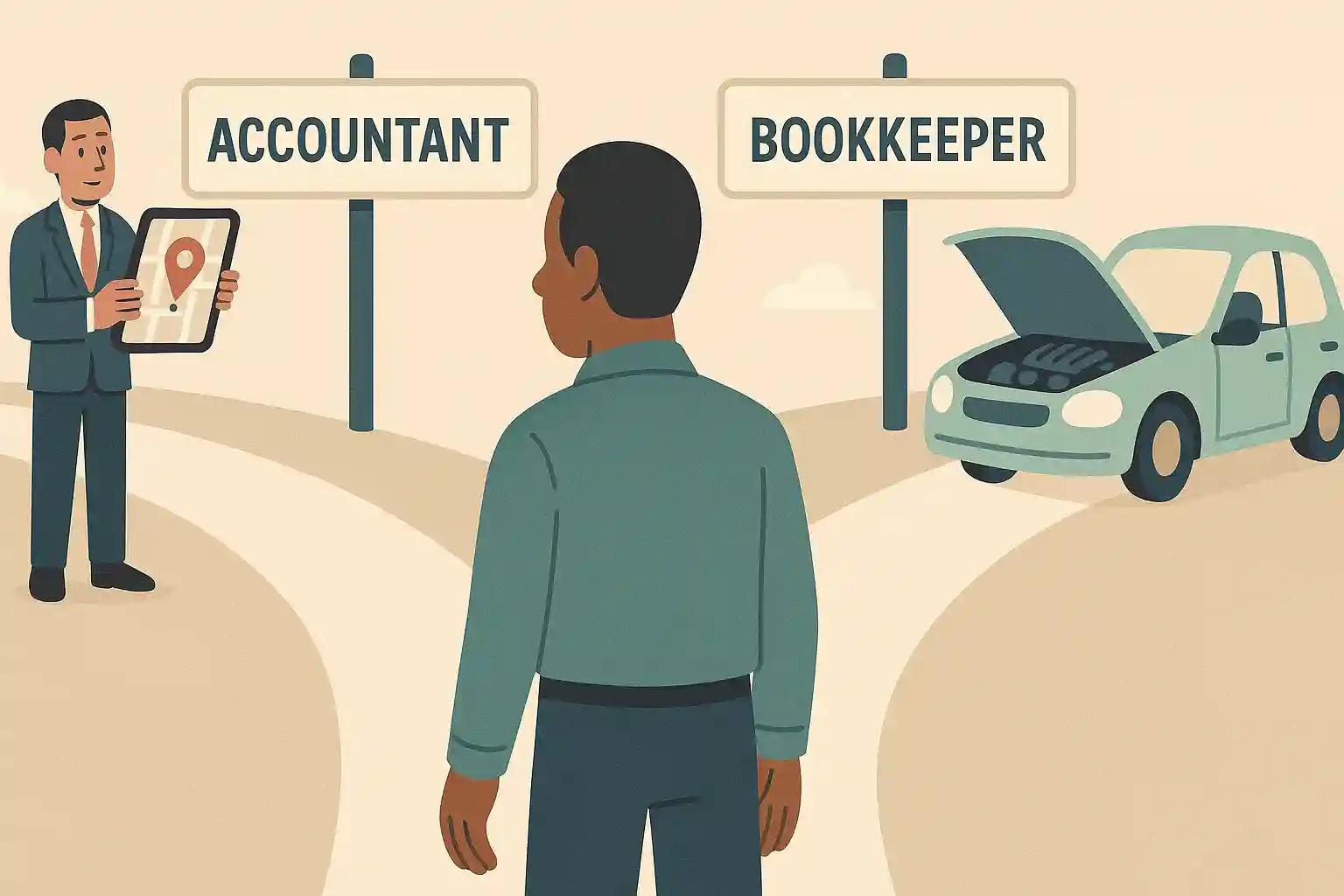Hire an Accountant or a Bookkeeper First?
Apr 30, 2025
3 min read

Think of your finances as a road trip. You need a reliable engine before you fine‑tune the GPS. In most small businesses, that engine is bookkeeping.
Why Bookkeeping Often Steals the Spotlight
Story Time:
Meet Jamie. She ran a dog-walking business and hired an accountant right away for $1,200 a month. Problem? Ninety percent of the questions she asked were about reconciling her Venmo receipts and invoicing clients—classic bookkeeper territory. She swapped to a bookkeeper for $350/month, and still had clean records ready for tax season.
Tip
72% of U.S. small businesses rely on bookkeepers first (AICPA survey, 2022). Companies under $250K annual revenue usually find a bookkeeper enough.
Role Comparison
Think of bookkeeping as your business's personal trainer. They help you keep financially fit and consistently organized.
An accountant would be a highly-trained doctor for your finances. They provide strategic, big-picture financial advice and expertise, especially around tax and legal structures. Here's how their roles differ:
BookkeeperYour Personal Trainer
AccountantThe Doctor
•
Recording every sale, purchase, and payment
•
Files taxes and optimizes liabilities
•
Reconciling banks and credit cards
•
Analyzes trends for budgeting
•
Creating easy-to-read financial snapshots
•
Interpreting your books to give legal and tax advice
•
Making sure you don't pay a bill late
•
Helping you plan for loans or investment
•
Flags unusual transactions
•
Strategic planning and financial forecasting
When to Level Up to an Accountant
If you answer 'yes' to any of these questions, it might be time to bring an accountant on board:
- Revenue exceeds $500K–$1M
- You plan a major financing round or sale
- You hit complex tax or regulatory hurdles
Common Questions
Can’t My Accountant Do Bookkeeping, Too?Absolutely—but consider this: accountants typically have advanced knowledge and command higher fees.
Can't I just use accounting software?Great tools—QuickBooks, Xero, Wave—are like autopilot. But you still need a pilot (bookkeeper) to steer, correct errors, and handle bumps.
Actionable Insights
- Start with a bookkeeper. Get daily clarity on cash flow
- Use cloud-based tools (e.g., QuickBooks, Xero) to keep records tidy
- When growth or complexity spikes, loop in an accountant
- Schedule quarterly reviews for proactive planning
Your small business needs a solid engine before you map the future. Bookkeeping lays the tracks. If and when you hit high speeds—bring in the accountant to steer. Start smart. Stay nimble. And watch your business cruise toward its goals. You go this!
Was this article helpful?
